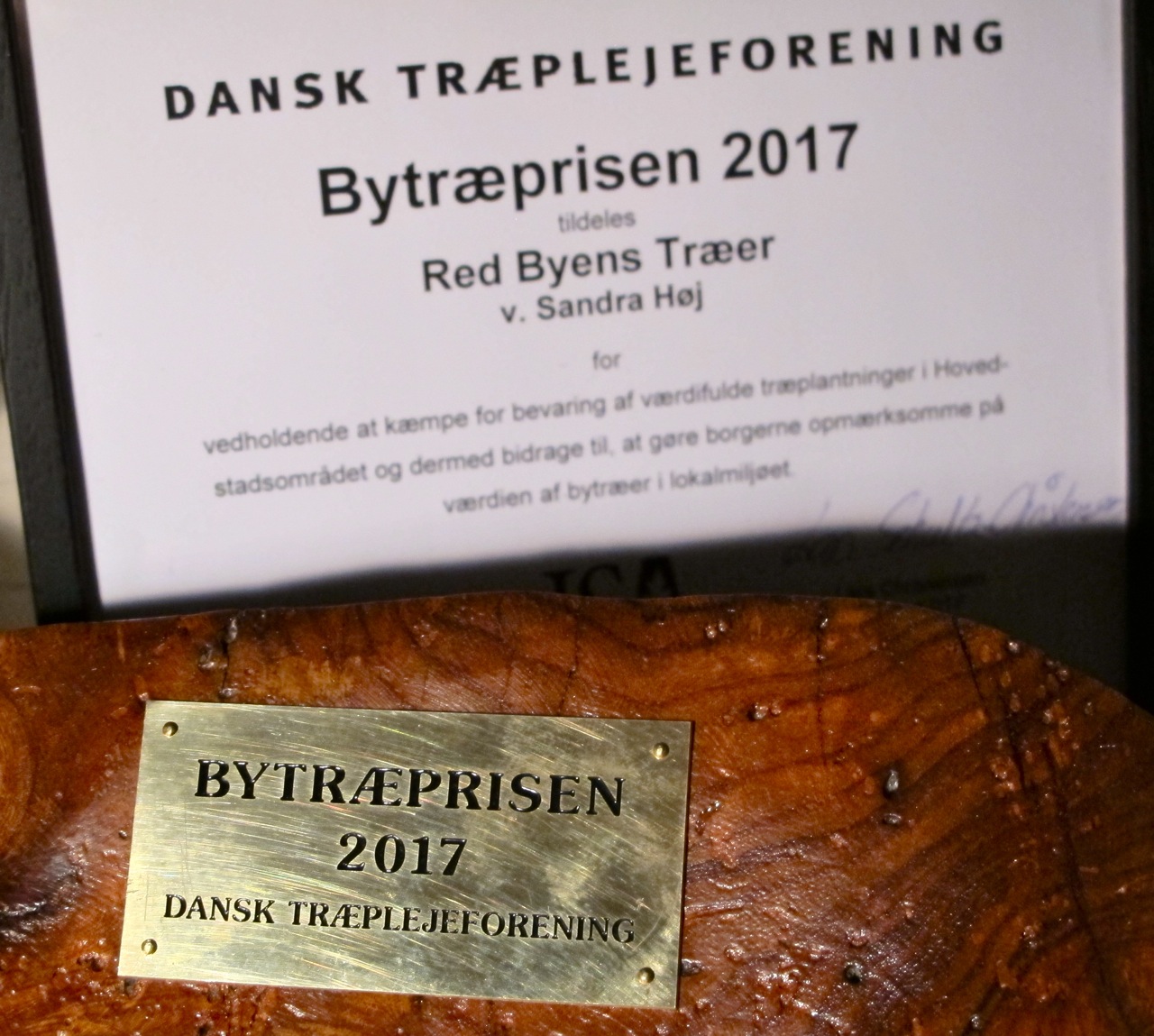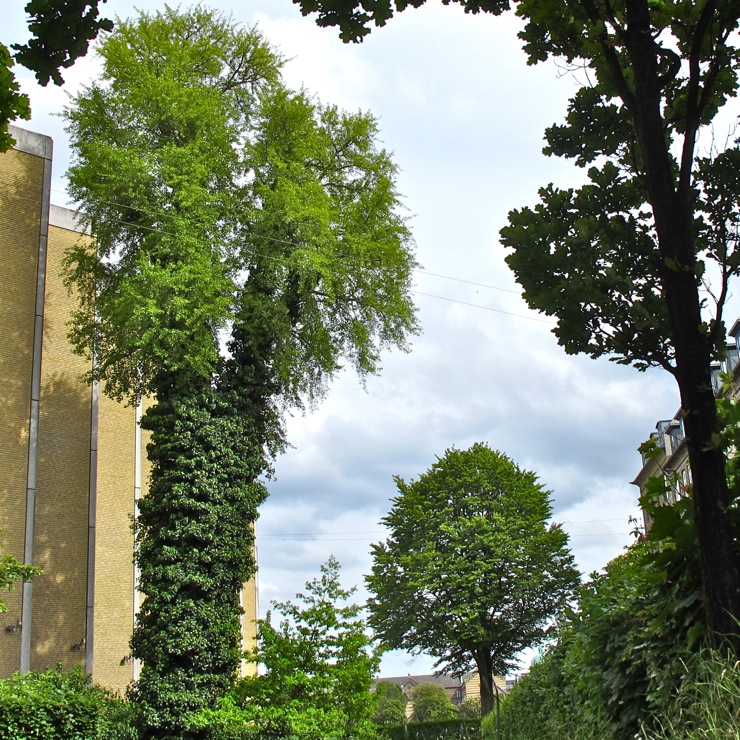There is a ladytree on Nørrebro. It moved into Læssøesgade in the year 1862, and have along with the great beech on the corner been the very soul of the street for the past 151 years. It is a rare tree, a Ginkgo Biloba, also known as a templetree, who comes both as a male and a female version. Ours is a lady so we have named her the Ladytree. Here she is dressed in a rainbow, photographed by Pauline Sinding:
Ginkgo Biloba trees can reach the age of 1000 years (if one can curb the chainsaw, that is) and is the world's oldest tree species. Strong and resistant to almost anything, and very tolerant to airpollution. A quality that comes in handy on the most polluted stretch in Copenhagen, where children in nearby institutions are told to stay indoors, and the neighbors are discouraged from airing out in the daytime.
The old tree is a celebrity, news worthy in Politiken October 31st 1967 and found worth saving in a scrap book:
The old tree is a celebrity, news worthy in Politiken October 31st 1967 and found worth saving in a scrap book:
The old trees of Copenhagen.
I prehistoric times the plantgroup in which the ginkgo-tree belongs, was very common, but now the ginkgo is the last remaining tree, all the others have gone extinct. In Japan the tree is sacred, in Denmark: a curiosity. It looks like a deciduous tree but it is coniferous. A couple of centuries ago the tree was imported into Europe and we know that in 1780 Great Britain bought five ginkgo's at each 500 dkr. Most Danish ginkgo's are female, unable to reproduce, but today it is easy to buy seeds overseas and trees in-country. Ginkgo's can be seen in the Landbyhøjskole's garden planted in 1864-65, in Haveselskabets Have, planted in 1880, in the Botanical garden and some private gardens, but one of the most remarkable specimens are right outside the public kindergarten in Læssøesgade near the lakes, where it conquers the skyline. The kindergarten is located in an old patrician estate in a big garden, and the ginkgo is of the same venerable age.
When it was decided in 1979 to build a retirement home facing the lakes, the city architect Eivind Lorenzen naturally withdrew the building line to preserve the old tree. A worried citizen wrote him to ensure the preservation of the old tree, and the answer was: "The ginkgo tree is an old acquaintance of this house, and in the building period special measures will be in place to make sure no harm comes to it."
(letter from the city architect to concerned citizen)
Today the neighbors and Save the Urban Trees will meet one last time with the city, who plans to demolish everything on the grounds and build a new Sølund retirement home. We will fight to preserve our Ladytree, and ensure that it is given the consideration that it, the street, the city and citizens deserve. You don't kill a Ladytree, you find a way to build around it, and make it a part of the new plan. Long as there is a garden anyway, place it in the gingko-end. And in the building period make sure special measures are in place to make sure no harm comes to it.
Links:
About Ginkgo Biloba (engelsk, udvidet)
UPDATE:
Press on the Ladytree in Ekstra Bladet (Danish)
The Ladytree has been listed and marked as endangered, by Dansk Dendrologisk Forening (Danish)
The Ladytree on Openstreetmap.org
At this moment they are drilling for soil samples right at the base of the old tree. Please mind the roots!
Unnecessary!












